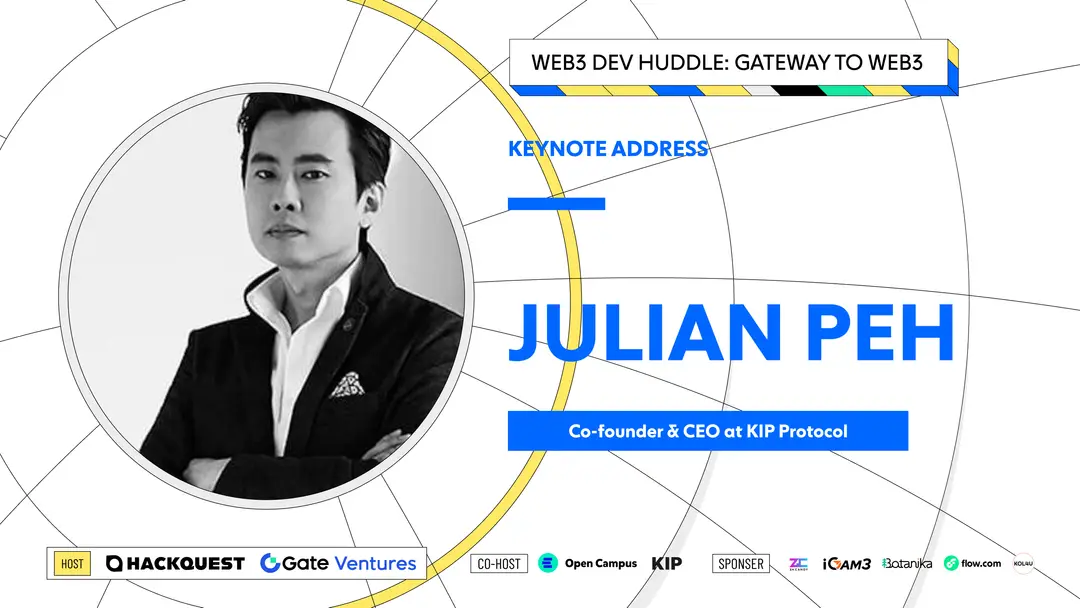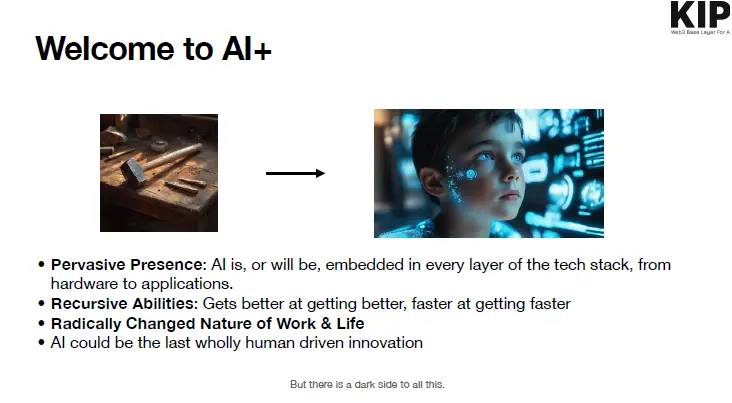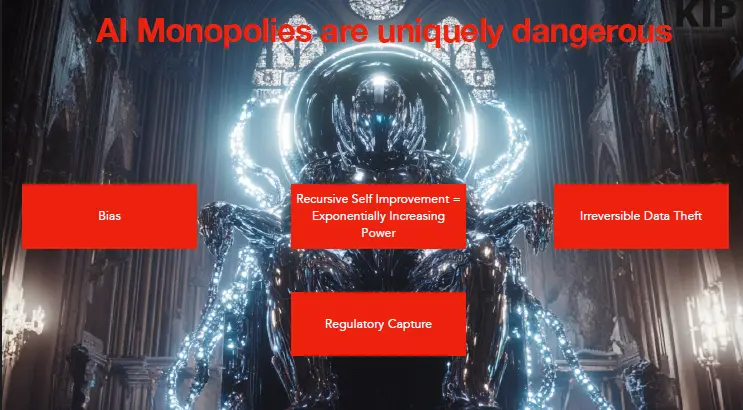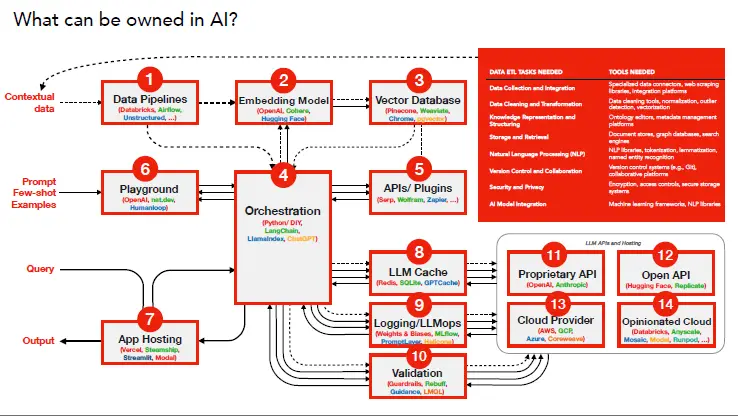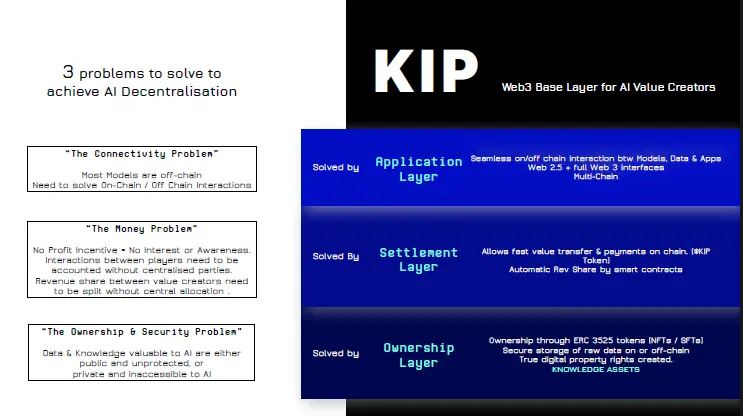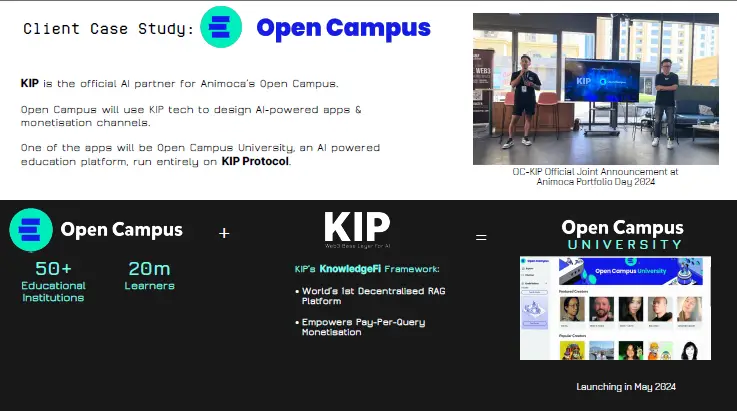On November 14, 2024, HackQuest and Gate Ventures, alongside Open Campus and KIP Protocol, hosted the second Web3 Dev Huddle: Gateway to Web3 at Gaysorn Tower, Bangkok. Julian Peh, CEO and Co-Founder of KIP Protocol, delivered a keynote addressing the urgent need to decentralize AI. He explored the dangers of AI monopolies, the role of Web3 in asserting ownership rights, and KIP Protocol's innovative solutions for decentralized AI assets. Read on for key insights from his session. ●The Problem with AI Centralization: Centralized AI systems amplify bias, allow irreversible data theft, and enable monopolies to consolidate control, limiting innovation and equity.
●The Promise of Web3: Blockchain and tokenization provide a framework to decentralize AI by enabling ownership of data, models, and applications. This allows individuals and organizations to assert their digital rights.
●KIP Protocol’s Vision: KIP Protocol bridges the gap between Web2.5 and Web3, offering solutions like ERC-3525 tokens and the $KIP token to ensure secure, trustless ownership and revenue-sharing for AI assets.
●Transforming Education: Education emerges as a clear use case, with KIP Protocol leveraging its technology to create decentralized, tokenized learning platforms, empowering learners and institutions alike.
●Call to Action: Julian called on builders, innovators, and educators to embrace Web3 and work toward a decentralized AI future where ownership and equity are fundamental.
The Growing Need for Decentralized AI
Julian opened his keynote by illustrating the unprecedented dominance of centralized AI systems, highlighting how leading AI companies control the ecosystem of models, data, and applications. He compared AI to a "young, intelligent child" that learns recursively, enhancing its capabilities in ways that traditional tools cannot. This self-improving nature makes AI a double-edged sword, with immense potential but also significant risks if concentrated in the hands of a few monopolies.
Julian argued that decentralization is no longer a luxury but a necessity. "We are already living in the era of AI monopolies," he declared, emphasizing that the unchecked power of centralized AI systems poses a severe threat to innovation, equity, and digital rights.
Challenges Posed by Centralized AI Systems
Centralized AI systems present three major challenges, which Julian identified as bias, data theft, and monopolistic control. He noted that all AI inherits human biases, which are further exacerbated when AI-generated outcomes are treated as absolute truths. Data theft, he explained, is another irreversible problem. Once AI models are trained on proprietary or personal data, the damage cannot be undone.
Perhaps most troubling, Julian highlighted regulatory capture, where AI companies like OpenAI play dual roles as both innovators and overseers. This, he argued, creates a dangerous conflict of interest, allowing monopolies to operate without meaningful accountability. The concentration of control in such companies limits the opportunities for smaller players and independent innovators, further entrenching their dominance.
Web3: Paving the Way for Ownership in AI
Transitioning into solutions, Julian introduced Web3 as a transformative framework for decentralizing AI assets. He explained how blockchain and tokenization enable verifiable ownership of three critical AI components: data, models, and applications. Web3 technologies ensure that these assets remain open and accessible, fostering innovation without the need for intermediaries.
However, Julian acknowledged the challenges of tokenization, particularly the difficulty of creating economic value for tokenized assets. KIP Protocol's approach to addressing this includes a trustless revenue-sharing model powered by its $KIP token, ensuring proportional income distribution for token holders. This aligns with their mission to create a unified product ecosystem where digital ownership is secure, transparent, and economically viable.
KIP Protocol: Bridging the Gaps in AI Decentralization
Julian elaborated on how KIP Protocol tackles three core challenges in decentralizing AI: connectivity, value creation, and ownership. KIP bridges Web2.5 and Web3 by integrating AI assets into a seamless decentralized infrastructure. The $KIP token enables efficient value distribution, while ERC-3525 token standards secure digital property rights, empowering creators to retain full control over their contributions.
KIP Protocol’s innovations are already paving the way for decentralized AI by addressing these key gaps. Julian emphasized that building trustless systems requires not only technology but also a robust economic model that incentivizes participation and ownership.
Revolutionizing Education Through Decentralized AI
Julian highlighted education as a prime example of how AI and Web3 can drive meaningful change. He introduced KIP Protocol’s partnership with over 60 universities to create decentralized educational platforms. These platforms aim to empower learners and educators through tokenized systems that reward contributions and reduce reliance on traditional institutional models.
A standout initiative, Open Campus University, showcases the potential of decentralized education. Built on KIP Protocol’s EDU Chain, this platform leverages blockchain to create a transparent and inclusive educational ecosystem. Supported by a $10 million grant, Open Campus University aims to onboard professors and institutions, creating a scalable, decentralized framework for lifelong learning.
A Call to Action: Shaping the Future of AI
Julian concluded his keynote by urging builders, educators, and innovators to embrace decentralization as the key to a more equitable AI ecosystem. He stressed the importance of asserting ownership over digital assets to prevent monopolies from profiting at the expense of individual creators. "Web3 isn’t just about decentralization; it’s about ownership," he said, encouraging the audience to leverage blockchain technology to create trustless ecosystems.
His parting words served as a rallying cry for the Web3 community: "Let’s build a future where everyone has a stake in the innovations of tomorrow." This message underscored the transformative potential of decentralizing AI through Web3.
Julian’s keynote provided a compelling vision for decentralizing AI by leveraging Web3 technologies. By addressing the dangers of centralized systems and presenting concrete solutions, he outlined a roadmap for building a fairer, more inclusive AI ecosystem. KIP Protocol’s initiatives in education exemplify how decentralized AI can be applied to real-world challenges, creating opportunities for innovation and equity in the digital age.
